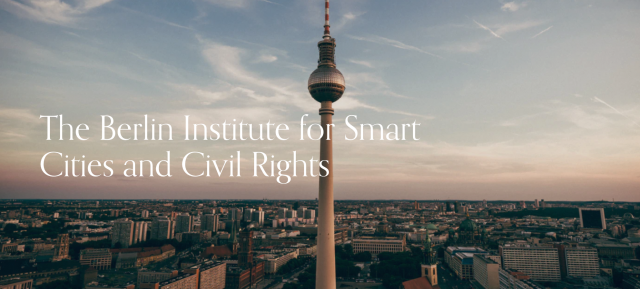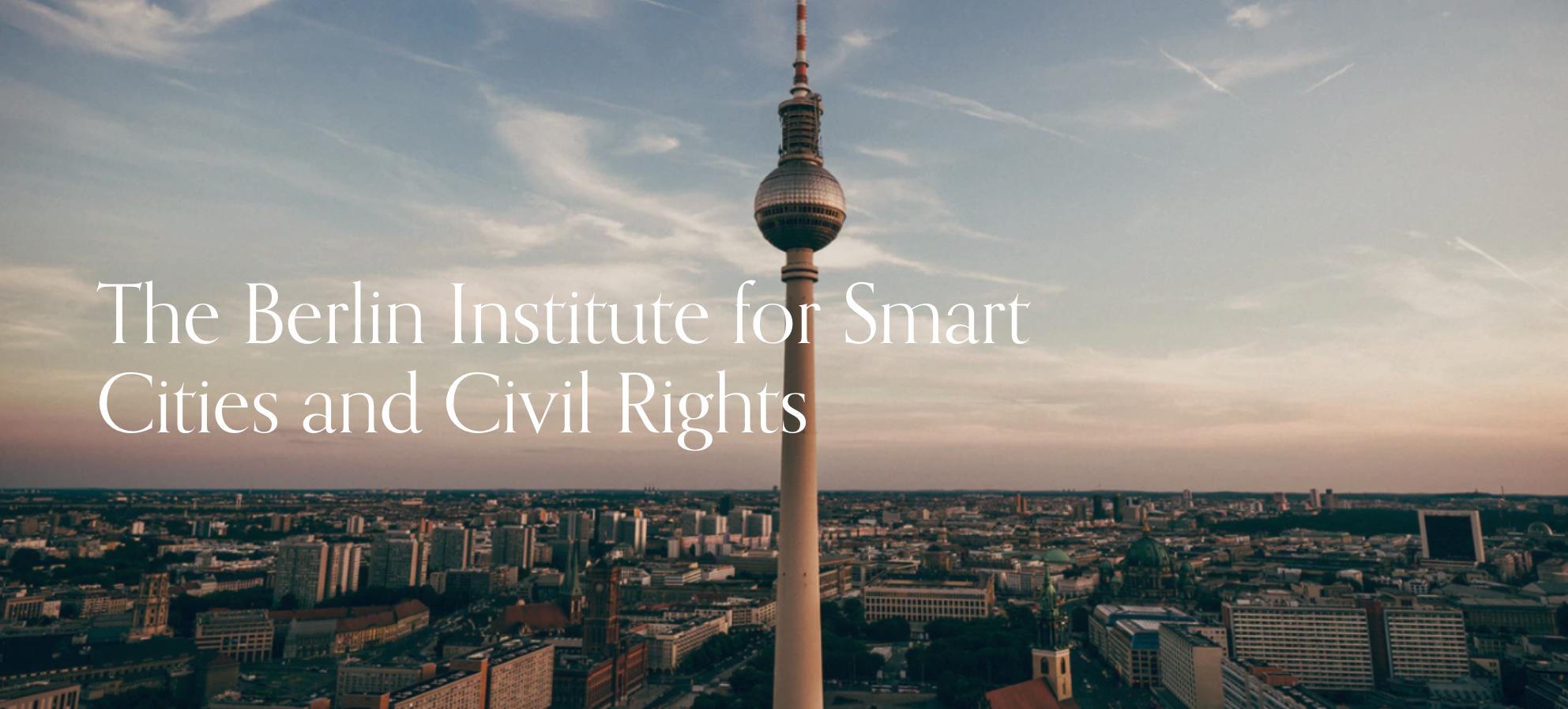This article is part of 20in20, a series of 20 blog posts in 20 days to kick off the blogging year 2020. This is 20in20:11.

Update Oct 2021: The Berlin Institute is being discontinued, at least for now, due to other commitments. Links to the website have been removed in the post below.
After working in this space for years, I’m convinced that smart cities are a key battleground in the fight for civil rights in the 21st century. I don’t say this lightly, either: I truly believe that smart cities — cities infused with data-driven infrastructure — are focal points where a range of technologies and issues manifest very concretely.
Why we need the Berlin Institute
Cities around the globe are exploring smart city initiatives in order to deliver better services to their citizens, and to manage resources most efficiently. However, city governments operate within a network of competing pressures and pain points. The Berlin Institute aims to help relieve those pressures and pain points by providing tools and expertise that put citizens and their rights front and center.
Together with my collaborator, former German human rights commissioner Markus Löning and his extremely capable team, we are setting out to realize the positive potential of smart cities while avoiding potential harms — by putting civil rights first.
With our combined expertise — Markus around human rights, mine around smart cities — we hope that we can make a valuable contribution to the smart city debate.
So today, as a soft launch, I’m happy to point towards our new website for the Berlin Institute for Smart Cities and Civil Rights (BISC). Lots there is still going to change as we keep refining. In the meantime, I’d love to learn more about how we can best help you and your city navigate this space.

